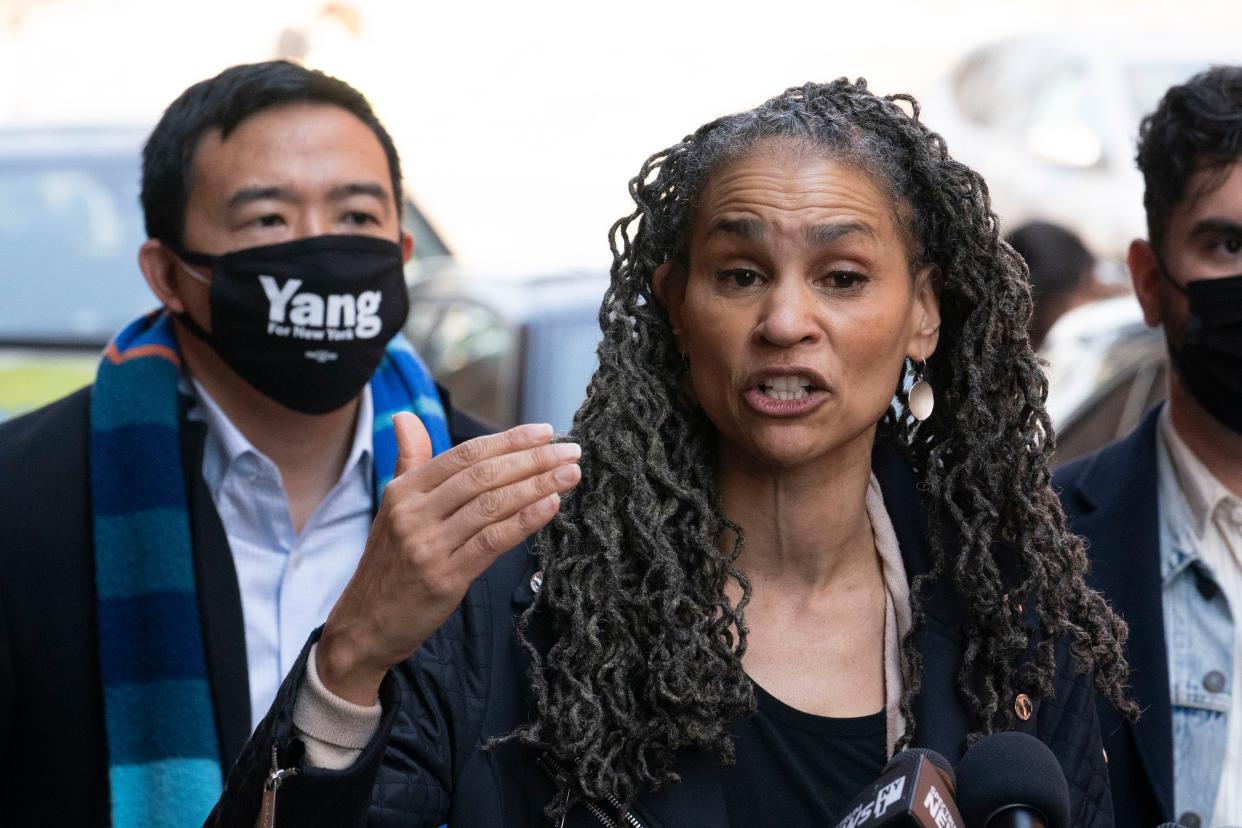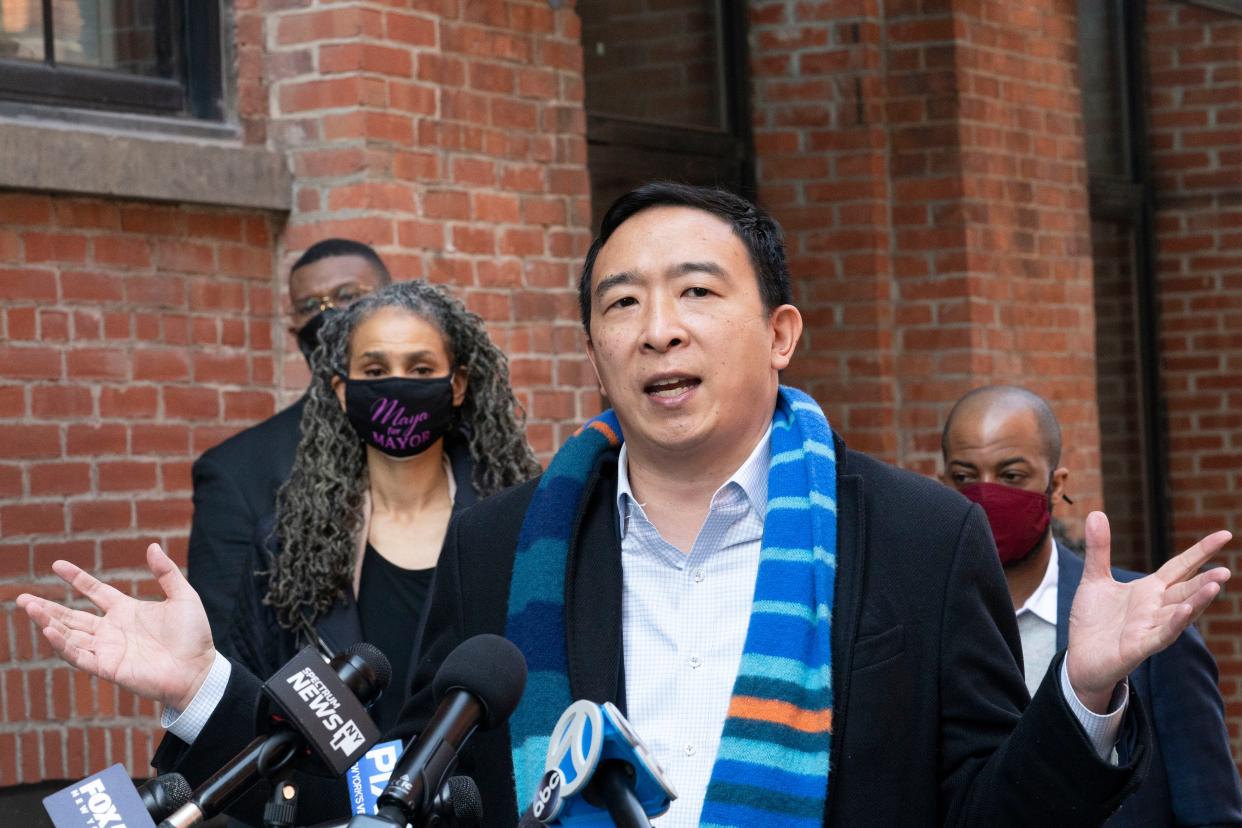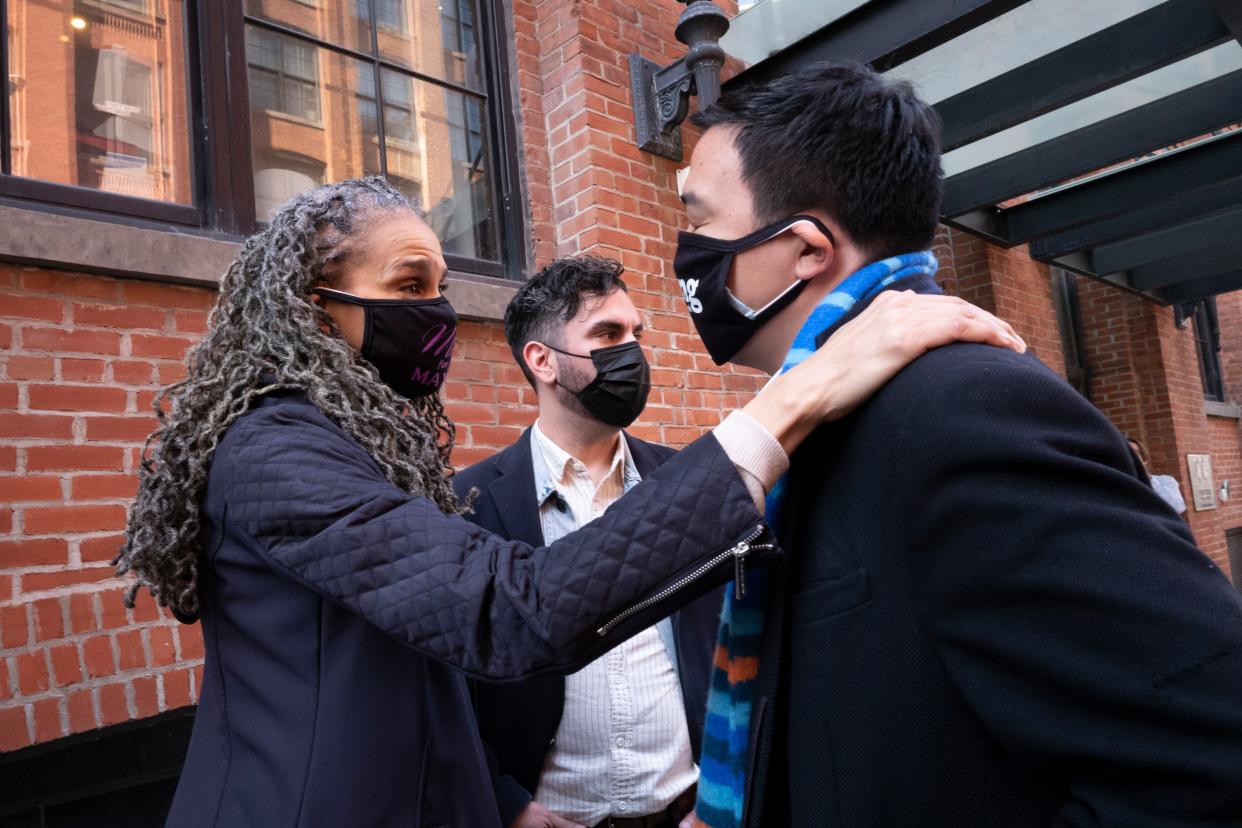Freelancers Union endorses Maya Wiley AND Andrew Yang for NYC mayor
The Freelancers Union endorsed both Maya Wiley and Andrew Yang for mayor on Thursday.
The unusual dual endorsement came with the mayor’s race featuring for the first time ranked-choice voting, in which voters will be able to list candidates in order of preference instead of picking just one.
“Both these candidates were the first to reach out to Freelancers Union to learn and talk about how their campaigns can help highlight the needs of the freelance community,” the union’s executive director, Rafael Espinal, said in DUMBO, Brooklyn. “Their genuine concern and their understanding of the role freelancers will play in bringing back the city shine through.”

An internal endorsement vote by the union, which counts more than 500,000 members, “was split right in half,” Espinal said.
“Knowing that we have a ranked-choice voting process, we thought it would be important to represent the full voice of our membership,” he added.
Yang, an entrepreneur who rose to national prominence during his unsuccessful 2020 run for the Democratic presidential nomination, made a range of promises on helping freelancers if he wins the packed mayoral race.
Those promises included establishing a “freelancers hub” in each borough.
“If you come to New York City, part of the joy of that is working alongside other people,” he said. “We need to make that easier for freelancers.”

Yang also proposed creating “portable benefits funds” for freelancers, which would be paid for through unspecified surcharges on some services to consumers, and creation of a deputy mayor of culture, entertainment and nightlife. Mayor de Blasio already has a “night mayor,” though that is a ceremonial job.
Yang’s speech was in keeping with his campaign to date, which has featured big promises like basic income for the poorest New Yorkers. He’s come out on top in recent polls about candidates, though Brooklyn Borough President Eric Adams has won the most endorsements from union powerhouses — most recently, the 32BJ SEIU union of property service workers.

Noting her mother worked as a freelancer after her father died, Wiley promised to fight for freelancers, who have been especially vulnerable during the pandemic.
“When I am mayor, this work will count, and these workers will be all our workers and we will all be back to work,” said Wiley, a former top legal aide to de Blasio.
Under ranked-choice voting, if no candidate wins a majority of first-choice votes, a process of elimination ensues. The candidate with the fewest first-choice votes is discarded, and people who voted for him or her get their second choices counted instead. The process continues until someone gets more than 50% of the ballot.
